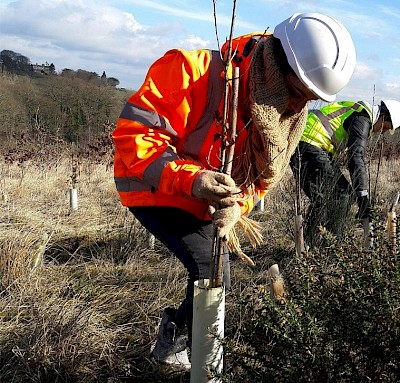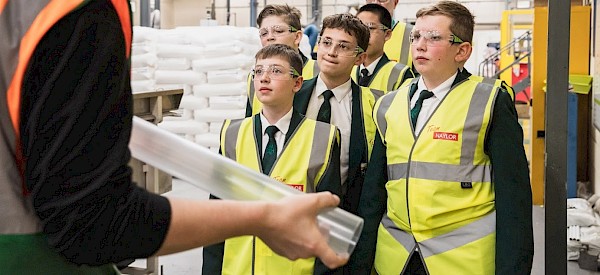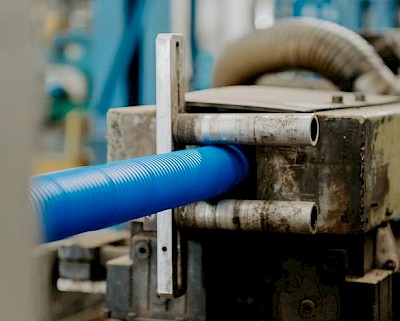An ability to create social value is of growing importance to companies in all sectors of our economy including construction. Government legislation in the form of the ‘Public Services (Social Value) Act (2013)’* effectively mandates the provision of social value by organisations which are appointed to deliver public sector contracts, such as National Highways providing road infrastructure for the UK, while private sector companies are increasingly asking suppliers to evidence what social value they provide as part of their procurement and tender processes.
Against this background, there has never been a greater focus on social value than there is now. But what does it stand for, why is it important and how can it be delivered in a meaningful way that has a real impact?
 When it comes to defining social value, there are a number of different definitions. The international standard ‘ISO26000:2010 -Guidance on Social Responsibility’** covers no less than seven different areas of focus comprising organisational governance; human rights; labour practices, the environment; fair operating practices; consumer issues, and community involvement. Whereas, at the highest level, the UK Green Building Council (UKBC) defines social value under the broader categories of jobs and economic growth; health, wellbeing and the environment; and strength of community.
When it comes to defining social value, there are a number of different definitions. The international standard ‘ISO26000:2010 -Guidance on Social Responsibility’** covers no less than seven different areas of focus comprising organisational governance; human rights; labour practices, the environment; fair operating practices; consumer issues, and community involvement. Whereas, at the highest level, the UK Green Building Council (UKBC) defines social value under the broader categories of jobs and economic growth; health, wellbeing and the environment; and strength of community.
Social value can perhaps be most simply described as how we look after people (employees, customers and suppliers), how we care for the environment, and how we engage with and support our local communities.
What’s important is that as businesses our approach to social value delivers real benefits and lays the foundations for lasting and sustainable change which benefits society as a whole and ultimately improves the quality of people’s lives.
For example, it’s estimated that the UK’s real estate alone could potentially generate an additional £30-billion in social valueiii and every organisation has their part to play.
Although we’re classed as a SME, Naylor Drainage has a strong track record in the delivery of social value under the three pillars of employment, community and environment.
To support employment, Naylor Drainage has run an apprenticeship programme for several years. The company currently employs more than eight apprentices and has plans to recruit more throughout 2024. In recent years, our apprentices have been employed in our marketing, manufacturing and technical departments gaining valuable hands-on experience and qualifications ranging from City & Guilds to PhDs.
The business also continues to work with local schools, colleges and community groups situated around our headquarters in Yorkshire, promoting careers in the construction sector and manufacturing industries, and highlighting the opportunities which exist. As part of our work with Sheffield Hallam University, we also provide students with a working environment in which to build case studies on and to aid the completion of their masters’ degrees. While our growth plan and investments at both our Yorkshire and Scottish sites will also create additional jobs.

From a community perspective, we have a long history of supporting the areas in which we all live and work. We maintain and repair local footpaths near to our sites, fundraise for local charities, and have even worked with a local badger group, donating pipes for the creation of badger setts. We also attend community meetings to learn more about and mitigate any issues caused by our business operations such as increases in traffic around our sites.
As a relatively small business, however, we are perhaps most proud of the initiatives we’ve introduced to look after the environment and minimise the impact of our activities.
These include: the adoption of an ambitious carbon reduction programme which sees the business working towards achieving net zero by 2050; working with Sheffield Hallam University on a heat recovery project for our CHP; projects to reduce the amount of packaging we use; supporting York University research by sharing information about how we’re delivering reductions in our carbon emissions; being part of the East Coast Hydrogen Project run by Cadent and Northern Gas networks, and providing information which will help develop a hydrogen infrastructure in the UK; making investments which will reduce our energy use and water consumption, and the development of a lower carbon version of our flagship drainage system, MetroDrain.
At a local level, we have beehives at our Cawthorne HQ which is, in itself a natural habitat that is home to plant unique species which are not commonly found in the locality and which has been maintained by Naylor for more than 100 years. And, to help our employees behave in a more environmentally aware way, we launched our ‘Greenwise’ initiative last year to educate them about energy saving measures they can use in their homes.
These initiatives not only underline our commitment to delivering social value but demonstrate how SMEs, as well as larger organisations, are able to deliver social value on an ongoing basis. This approach is also reflected in the social value we deliver on client projects and even by our procurement strategy which supports the use of companies with strong social value credentials.
At the end of the day, we believe every organisation has the potential to deliver social value for the communities in which it lives and works, and society as a whole. As a responsible, forward-looking business we are committed to its delivery and to continuously assessing how we further develop the social value we provide.
* https://www.gov.uk/government/publications/social-value-act-information-and-resources/social-value-act-information-and-resources
** https://www.iso.org/standard/42546.html iii https://www.smf.co.uk/wp-content/uploads/2022/09/Social-value-roadmap-for-real-estate-Sept-2022.pdf

